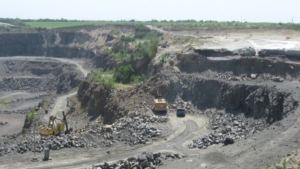
Ukraine will need at least $120 billion next year if the war unleashed by Russia continues, in order to hold the front line and minimize the number of lives lost among its defenders, Ukrainian Defense Minister Denys Shmyhal reiterated his July assessment at the annual YES conference “How to End the War,” organized by the Pinchuk Foundation in Kyiv on September 12-13.
“If the war ends, we will need a slightly smaller amount to simply keep our army in good shape in case of secondary aggression from the Russian side,” Shmyhal said.
“The economics of war show that if we spend less money than Russia, then we start paying with our territories and, most importantly, with our lives. Therefore, we need to attract all the necessary resources, all the necessary money,” he stressed.
The defense minister acknowledged that after three and a half years, many taxpayers are exhausted from spending such a huge amount of money, so he spoke in favor of using frozen Russian assets until Russia compensates for all the expenses that Ukraine and all countries have incurred during this wartime.
In his opinion, such a solution can be found even without direct confiscation, because the legal complexity of this procedure is understandable.
“We need to have a stable source of funding to finance Ukraine’s defense and reconstruction. Therefore, the number one issue for all of us is to find a political and legal solution for the use of frozen Russian assets,” Shmygal said.
He highlighted three main priorities: supplying the Defense Forces with more FPV drones, more robotic systems, and artillery shells, including long-range ones; sky defense—both with Patriots against ballistic missiles and with interceptor drones against drones; long-range weapons—Ukrainian-made drones and missiles.
“If our Western partners provide us with more deep strike systems and equipment, we will be absolutely delighted. But we can produce our own deep strike weapons, and again, we need funding,” the defense minister said.
He explained that such long-range strikes put the most pressure on the Russian economy and society, as well as directly on Putin, because they allow for the destruction of their oil refineries and military production infrastructure.
“We need to produce more, we need to continue carpet bombing operations, when all the planes in the Moscow region are grounded day after day. This is very inconvenient for the Moscow elite, and they are directly telling Putin: let’s stop this war because we can’t fly,” Shmygal added.
According to him, he conveys these needs during meetings in the Rammstein format.
In addition, the defense minister announced the need to create a so-called Kill Zone, which is currently being formed on the front line, to prevent aggression from recurring in the future. “These are lines of drones covering 10, 15, or even 30 km of territory,” he explained.
According to estimates by Alexander Parashchiy, head of the analytical department at investment company Concorde Capital, defense and security spending in 2024 amounted to approximately $95 billion, while this year he predicted it would grow to approximately $100-105 billion. Approximately half of this amount comes from the budget, while the other half has been provided by partners until recently.
In addition, Ukraine attracts about $40 billion in external financial assistance annually for non-military purposes in order to be able to finance military needs from the budget. For next year, Finance Minister Serhiy Marchenko has estimated the need for external financing of the state budget deficit at $45 billion, of which EUR16 billion has not yet been secured.
CONFERENCE, SHMYHAL, WAR, ЄС

Approximately 5.7 million people from Ukraine remain displaced worldwide, 3.8 million are internally displaced, and 4.1 million have returned from displacement either within Ukraine or from abroad, according to the International Organization for Migration (IOM).
“Displacement remains a defining feature of the crisis,” said an IOM spokesperson in a statement on the recent attacks in Ukraine, published on the organization’s website on Tuesday.
IOM also expresses deep concern about the continuing rise in civilian casualties across Ukraine and stresses the urgent need for measures that prioritize the protection of civilians and provide necessary humanitarian assistance.
“The civilian population of Ukraine continues to bear the heavy burden of war as Russian strikes hit towns and villages on the front line and beyond. In July 2025 alone, the Office of the United Nations High Commissioner for Human Rights recorded 286 deaths and 1,388 injuries, the highest monthly figure since May 2022,” the statement said.
The IOM also stresses the urgent need for measures that prioritize the protection of civilians and provide necessary humanitarian assistance.
IOM, UKRAINIANS, WAR

In a week or two, it will be clear whether the war will end or the fighting will continue, according to US President Donald Trump.
“I think President Putin wants to find an answer, and we’ll see. And if after a certain amount of time, not too far from today, a week or two, we’ll know whether we’ve solved this problem or whether these terrible battles will continue. We will do everything we can to put an end to this,“ Trump said before meeting with Ukrainian President Volodymyr Zelensky and European leaders.
He noted that there are two sides ”that want to make a deal.”
“And it’s possible that it won’t work out. On the other hand, it’s possible that it will work out. And we will save thousands and thousands of lives every week. So this is what we really have to do. Or at least we have to make every effort. But I think we can get a very good result,” Trump stressed.

If a trilateral meeting between US President Donald Trump, Ukrainian President Volodymyr Zelensky, and Russian President Vladimir Putin takes place, the war could end before Christmas (December 25), according to Republican Senator Lindsey Graham.
“If a trilateral meeting between US President Donald Trump, President Zelensky and Putin takes place, I am cautiously optimistic that this war will end well before Christmas,” he wrote on social media.
“If the meeting does not take place, I think President Trump could impose serious consequences on Putin and those who buy his oil and gas,” Graham predicts.

During its spring offensive, Russian forces took control of one of Ukraine’s most promising lithium deposits — the Shevchenkivske site in Donetsk region. Previously under development by an American critical minerals company, the site was seen as a key asset in the growing economic partnership between Kyiv and Washington in the field of strategic resources. Its capture now poses serious risks to future joint projects and has already raised concerns among Western investors.
The Shevchenkivske deposit contains significant reserves of spodumene — a mineral from which lithium is extracted. Lithium is essential for manufacturing batteries used in electric vehicles and energy storage systems. Ukraine had earlier signed a framework agreement with the United States on cooperation in the field of critical raw materials, including the development of domestic lithium, titanium, and rare earth element extraction — crucial for the West’s green energy transition. The agreement envisioned attracting investment into Ukrainian subsoil resources. However, with Shevchenkivske now under Russian control, the feasibility of that cooperation is under threat.
Myroslav Zhernov, the director of the company holding the license for the site, confirmed the loss in a comment to The New York Times. According to him, the battle for the deposit lasted several weeks: “It was very hot. They were bombing with everything they had. And now they’re there.” Zhernov warned that this may not be the end: “If the Russians advance farther, they will control more and more deposits.”
The New York Times reports that signs of activity have already been observed on the occupied territory: an assessment of reserves is underway, and preparations for future extraction may be in progress. In this way, control over lithium could give the Kremlin not only military but also geoeconomic advantages. The article notes that Russia is already leveraging its influence in global raw materials supply chains, particularly in uranium markets.
Although Ukraine still possesses two other major lithium deposits in its western regions, Shevchenkivske was considered the most promising due to its high spodumene concentration — up to 90%. In peacetime, the development of this site could have become not only a source of revenue, but a strategic lever for integrating Ukraine into Western critical materials markets.
Former head of the State Service of Geology and Mineral Resources, Roman Opimakh, explained that such investments are subject to enormous risks during wartime: “Security and control over a deposit is the main prerequisite. The military threat scares away investors, and the loss of such a site effectively nullifies any near-term development plans.”
Observers note that the war is increasingly taking on characteristics of economic conflict. Russia is not only destroying infrastructure but is actively targeting resources that could be useful to itself or potentially strengthen Ukraine. Gaining control over lithium assets allows for pressure on Western corporations and contributes to reshaping global dependencies.
Despite the loss, Zhernov said his company is not giving up on investing in Ukraine and is exploring other options. However, he admitted the situation has fundamentally changed risk assessments: “Before, we saw this project as a driver of economic growth. Now — it’s just another front in the war.”
Earlier, the Experts Club information and analysis center produced a detailed video analysis of the prospects for rare earth element mining in Ukraine.

Israel’s strikes on Iran’s gas infrastructure will push up gas prices in Europe, which means they may also rise in Ukraine, according to Andriy Kobolev, former head of the board of Naftogaz Ukraine.
“Israel has begun to destroy Iran’s gas infrastructure with drones… For those wondering what to do about gas purchases for this winter: this will have a significant impact on the balance (and therefore the price) of natural gas in Europe,” he wrote on Facebook on Sunday.
Kobolev explained that Iran had been supplying gas to Turkey, which resold it to the EU, but now, due to Israeli strikes, Iranian gas is at risk of being cut off, and the Turks will not be able to replace it with Russian gas because both gas pipelines are almost fully loaded.
“Therefore, Turkey will be forced to either reduce gas supplies to the EU or increase the share of more expensive LNG. In any case, this will push prices up in the EU. And if Israel continues to attack the Iranian gas sector, part of Russian gas may be redirected to Iran,” the former head of Naftogaz concluded, advising to prepare for such an impact on prices.
As reported, Ukraine was forced to return to significant gas imports from Europe due to Russian strikes on gas infrastructure.
According to the Ukrainian Gas Transmission System Operator (OGTSU), 501 million cubic meters were imported in May (54% via Hungary, 33% via Poland, and 12% via Slovakia), or 16.1 million cubic meters per day. At the same time, former OGTSU board chairman Serhiy Makogon believes that Ukraine needs to import approximately 870 million cubic meters per month, or 29 million cubic meters per day, to achieve last year’s planned gas storage targets in underground gas storage facilities (UGS).